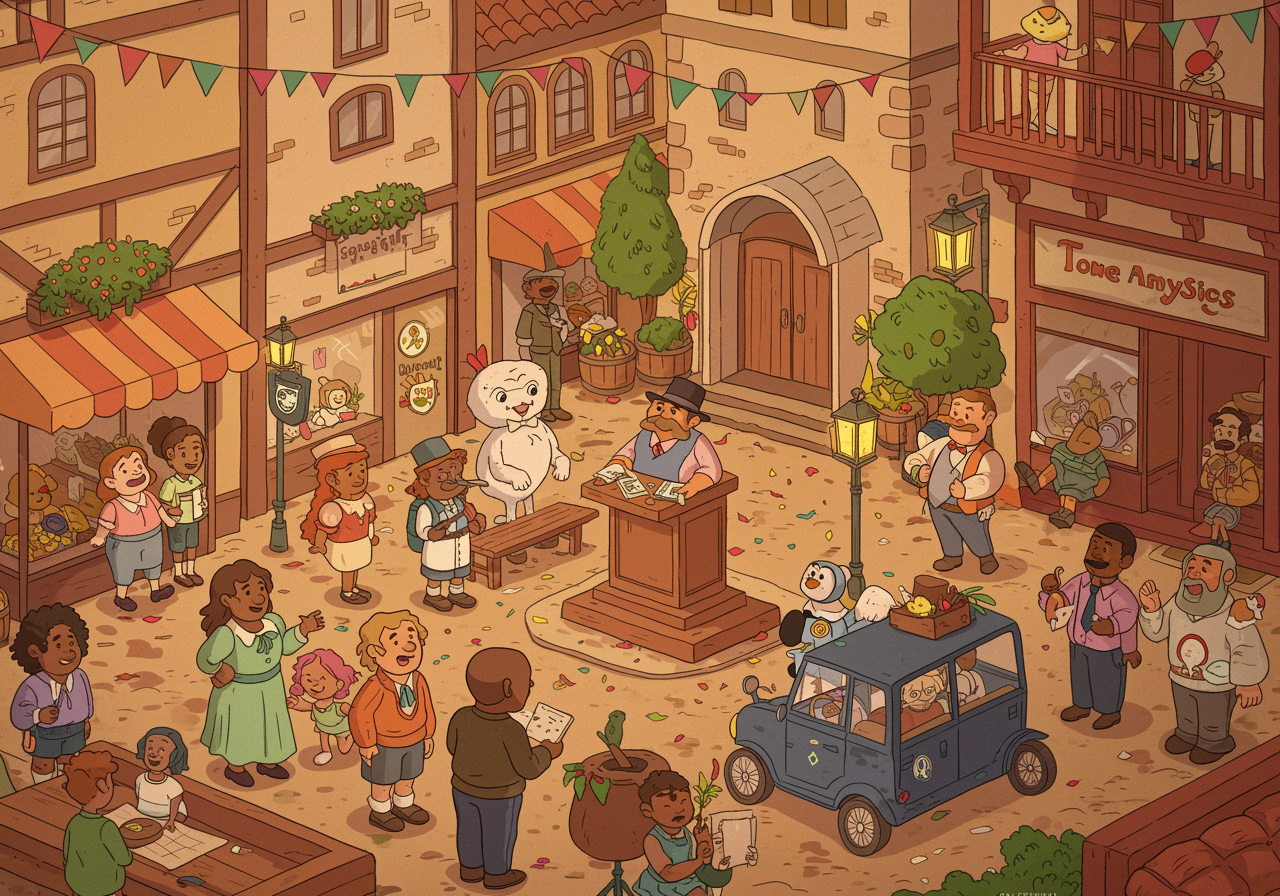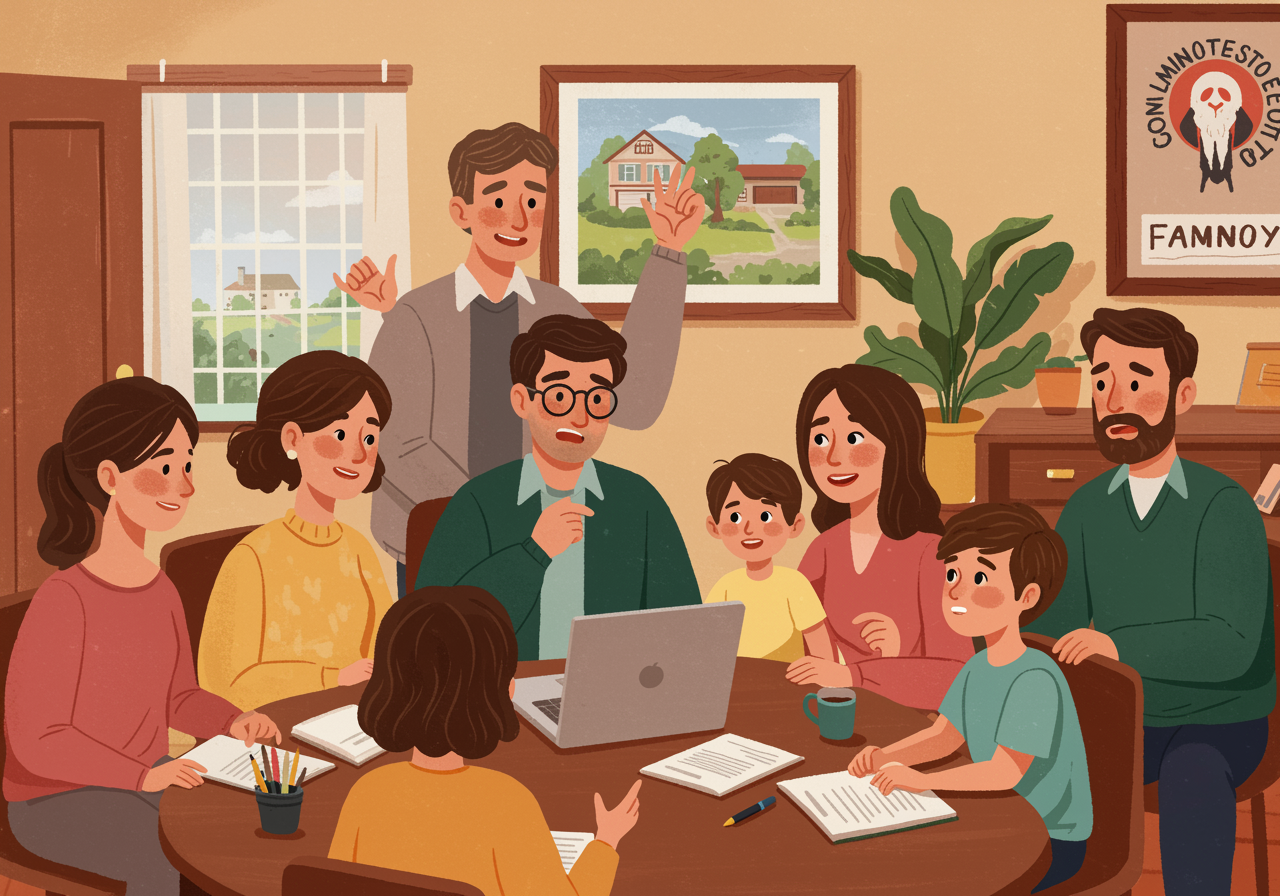When Towns Get New Leaders: Why Everyone Feels Different About Tomorrow

Discover why new leadership makes people hopeful, nervous, or excited about what’s coming next
Ever wonder why your neighbors get so excited (or worried) when their town gets a new mayor? Let’s explore how fresh leadership changes the way entire communities dream about their future.
Overview
Think about when your school gets a new principal or your favorite sports team gets a new coach. Everyone starts buzzing with questions: Will things get better? What will change? The same thing happens when towns and cities get new leaders like mayors or city council members. People's feelings about their community's future can shift dramatically overnight. Understanding this helps us see why elections matter so much and why people care deeply about who leads their community.

Understand in 30 Seconds
Get up to speed quickly
- Fresh Eyes, Fresh Ideas: New leaders often bring different perspectives and solutions that can make people feel hopeful about solving old problems.
- The Unknown Factor: Change always brings uncertainty, which can make some people excited and others nervous about what's ahead.
- Community Energy Shifts: When leadership changes, the whole vibe of a town can change – from sleepy to energetic, or from tense to optimistic.
- Everyone's Voice Matters: New leaders remind people that their votes and opinions can actually shape their community's direction and future.
Real Life Scenario
Situations you can relate to
Imagine your school's student council president graduated, and now there's a new one with totally different ideas. Maybe the old president focused on school dances, but the new one wants to start a recycling program and get better cafeteria food. Some students are thrilled – finally, someone who cares about the environment and decent lunch! Others might miss the fun social events and worry the new president is too serious. The same feelings happen in real towns. When a new mayor promises to fix potholes and build a new park, families with kids get excited. But business owners might worry if the new leader plans to raise taxes to pay for improvements. What matters is that everyone's feelings are valid, and good leaders try to listen to different viewpoints.

Role Play
Spark a conversation with “what if” scenarios
What if your family was choosing a new 'household manager' to make decisions about chores, allowance, and family activities?
- Role play: Take turns being the 'candidate' and explain your platform. Have family members ask questions about your plans and share their hopes or concerns.
What if your neighborhood was getting a new community center director who would decide what programs and activities to offer?
- Role play: Role-play a town hall meeting where different family members represent different community groups (teens, seniors, families with young kids) and share what they hope the new leader will prioritize.
What if your school district was getting a new superintendent with big plans to change how schools operate?
- Role play: Discuss how different people (students, teachers, parents) might feel about changes like longer school days, more technology, or different testing methods.
FAQs
Frequently asked questions people want to know
Why do some people get so emotional about new leaders?
Because leadership affects people's daily lives – from the roads they drive on to the schools their kids attend. When someone new takes charge, it can feel like their whole future is changing.
Do new leaders always make things better?
Not always, but they bring fresh energy and different ideas. Sometimes change is exactly what a community needs, and sometimes it takes time to see if new approaches work.
Why don't all people feel the same way about new leadership?
Because everyone has different priorities and experiences. A new leader's plans might help some people while making others worry about losing something they value.
Examples in the Wild
See how this works day to day
- When Eric Adams became New York City mayor in 2022, many residents felt hopeful about his focus on public safety, while others worried about his approach to police reform. (New York Times)
- Small towns across America have seen young mayors elected with promises of economic revitalization, bringing optimism to communities that felt left behind. (NPR)
- In 2021, several cities elected their first female or minority mayors, creating excitement about representation and new perspectives in leadership. (USA Today)
- When COVID-19 hit, communities with new leadership had to quickly adapt, showing how fresh leaders can respond differently to unexpected challenges. (Associated Press)
In Summary
What you should know before you start
- New leadership brings fresh ideas and energy that can make people feel hopeful about solving community problems
- Change creates uncertainty, which naturally makes some people excited and others nervous about the future
- Different people have different priorities, so new leaders affect everyone differently
- Leadership changes remind us that civic participation and voting really do matter for shaping our communities
Pro-tip for Parents
You got this!
If your teen seems confused about why adults get so worked up about local elections, help them connect it to their own experiences with leadership changes at school or in activities they care about. Ask them how they felt when their favorite teacher left or when their sports team got a new coach. This makes the abstract concept of political leadership much more relatable and helps them understand that people's emotions about change are completely normal.

Keep an Eye Out For
Find these examples in everyday life
- Local elections in your area – watch how candidates present their visions and how community members respond
- News about new mayors or city council members in nearby towns and the different reactions people have
- Changes in leadership at your child's school or activities and how it affects the mood and direction of those organizations
Explore Beyond
Look up these related research topics
- How do leaders build trust with their communities?
- Why do some people choose to run for public office?
- What makes a community resilient during times of change?